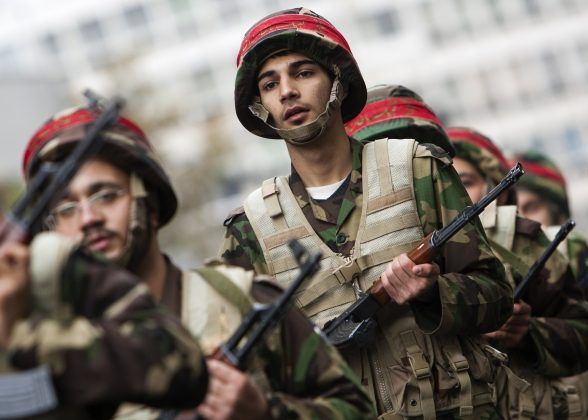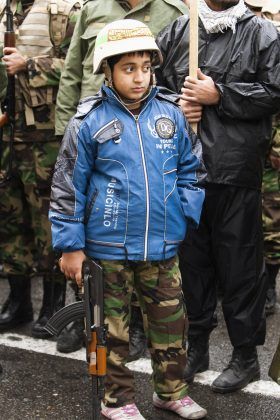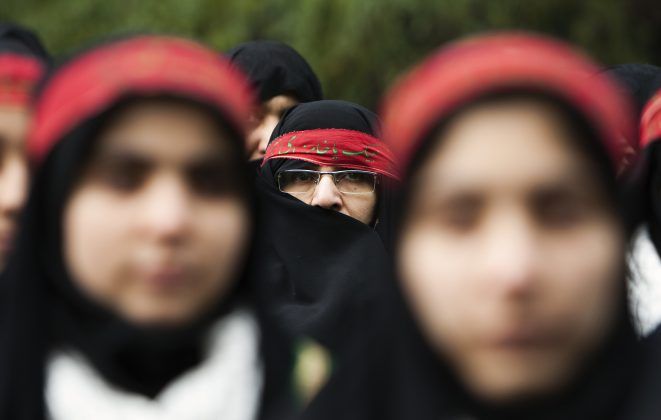By Lesley Wroughton
WASHINGTON, Oct 16 (Reuters) – The U.S. Treasury imposed sanctions on Tuesday on a multibillion-dollar financial network that supports an Iranian paramilitary force that it said recruits and trains child soldiers for the country’s elite Revolutionary Guards.
The announcement came two weeks before the Trump administration reimposes some of the United States’ harshest sanctions against Iran, including its oil sector.
The Bonyad Taavon Basij network provides financial infrastructure to the Basij Resistance Force, a paramilitary force that works for Iran’s elite Islamic Revolutionary Guard Corps (IRGC), the Treasury said in a statement.
Both Basij groups were targeted by the new sanctions.
“This vast network provides financial infrastructure to the Basij’s efforts to recruit, train, and indoctrinate child soldiers who are coerced into combat under the IRGC’s direction,” said Treasury Secretary Steven Mnuchin.
The Basij is involved in violent crackdowns and serious human rights abuses within Iran, the statement said. It recruits and trains fighters for the IRGC-Quds Force, including Iranian children as young as 12, who then deploy to Syria to support the government of President Bashar al-Assad regime, it said.
The designations highlight that “this Iranian regime is not a normal government,” a senior administration official said. “Normal governments don’t have revolutionary arms that support revolution and wreak havoc with their neighbors. They don’t recruit indoctrinate and use child soldiers.”
The sanctions were imposed on Bank Mellat, Mehr Eqtesad Bank, Mehr Eqtesad Iranian Investment Co and five other investment firms, the Treasury said.
The sanctions also target Iran Tractor Manufacturing Co, the Middle East’s largest tractor manufacturer, and Esfahan’s Mobarakeh Steel Co, the largest steelmaker in the Middle East and North Africa region, Treasury said.
(Reporting by Lesley Wroughton and David Alexander; Writing by Doina Chiacu; Editing by James Dalgleish and Jonathan Oatis)




